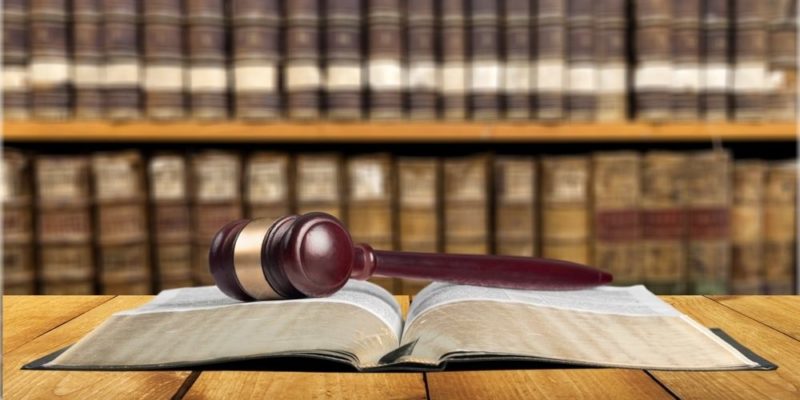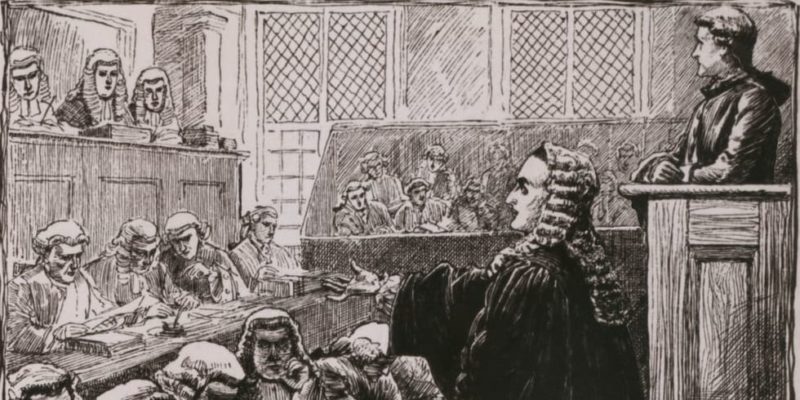We explain what the sources of law are and why they are so important. Also, its hierarchy and classification.

What are the sources of law?
The sources of law are all those acts, events and past traditions that serve to create, modify or extinguish legal norms. These sources vary according to the legal system of each nation, but they are usually treaties, constitutions, codes, customs, natural law, jurisprudence and the bodies from which the norms come.
The notion of justice, law and order varied throughout history, so the first sources of law were influenced by religion, customs, morality and the first codes of conduct of humanity, such as Bible or the Code of Hammurabi. However, in modern times also It is included among the sources of the right to international treaties, constitutions, laws and regulations and everything that is part of the history of written law. Natural or universal law is also taken into account, whose principles are associated with the very existence of the human being.
The sources of law are useful because allow us to know the origin of the norms. They are also used from a historical perspective when thinking theoretically or scientifically about law as a discipline.
Types of sources of law

The sources of law, according to traditional consideration, are classified as:
- Material sources or sources in the material sense. They are those historical, social, economic and political factors and facts that affect the content, formulation or modification of a norm.
- Formal sources or sources in the formal sense. They are the documents, texts and books in which the law is formally recorded. It also includes the processes in which a standard is created, modified or promulgated. Some examples of formal sources of law are:
- Legislation. Set of laws and regulations issued by the competent authority and that are valid within a certain territory. Laws govern the behavior of individuals because they determine duties and rights.
- Jurisprudence. Set of rulings and resolutions issued by the competent legal authority, which may have greater or lesser influence on subsequent rulings.
- Habit. Set of behaviors and situations that occur frequently and sustainably within a social group and that should not go against the law.
- Doctrine. Set of studies, opinions and works carried out by jurists or qualified sources about norms and law.
- General principles of law. Set of fundamental statements of law that express duties or guide conduct. For example: the principle of equality, the principle of hierarchy or the principle of proportionality.
- Historical sources. They are documents inherited from the past that contain relevant information on the legal subject or the laws of their time. For example: The Code of Hammurabicoming from ancient Mesopotamia.
Other possible criteria, of a theoretical nature, on the sources of law, distinguish between:
- Political sources. They are those that aspire to collective organization or institutional processes, such as political party programs, for example.
- Cultural sources. They are those obtained through observation of the past and the theoretical study of current legal affairs.
Or between:
- Original sources. They are those that create the law from nothing (ex nihilo“out of nothing” in Latin), such as those of revolutionary political processes.
- Derived sources. They are those that are inspired by a previous legal framework.
Hierarchies of the sources of law
The sources of law do not have the same importance in all legal systems so each State determines the hierarchy that these sources have when dictating rules or legislating. In all cases, lower-ranking sources cannot contradict higher-level ones.
Based on jurisprudence and its treatment as a source of law, two main systems are differentiated:
- continental system. It is also known as European law (because it is one that is derived from systems such as Roman and Greek) and it is the one that prevails in most European and Latin American countries. For continental law, the main source of law are the norms that emanate from the powers whose function is to legislate. In this system, jurisprudence is not taken into account as a source of law, but as a source of interpretation. The hierarchy of sources within this system includes the Constitution as the maximum source, followed by laws, decrees, regulations, ordinances, agreements, among others.
- Anglo-Saxon system. It is the system called common law, which is part of English law, and in which the main source of law is not legislation, but the resolutions and sentences that are made for each specific judicial process. In the Anglo-Saxon system, the law is created in the courts taking into account jurisprudence, that is, previous cases with some similarity. In this system the hierarchy is headed by jurisprudence followed by laws.
Importance of the sources of law
The sources of law are the basis for the right which is the instrument that regulates the functioning of the different companies. Knowing the sources allows the individual to know and understand the process used to create the norms and the influence that different factors have on them.
The norms arise from the sources of law which are what allow ordering and structuring all those provisions that seek to regulate social behavior and establish duties and rights. It is important to mention that these rules will be applied as long as they arise from competent authorities and the stipulated procedure is respected.
The importance and hierarchy of the different sources of law will vary according to the legal system that is applied in each State. In all cases, The legislation will be updated according to historical and social development and will take into account a wide variety of factors (including some that go beyond the law).
Continue with: Constitutional law
References
- “Sources of law” in Pan-Hispanic Dictionary of Legal Spanish.
- “Sources of law” at the National Autonomous University of Mexico.
- “What are the sources of international law?” at Center for Human Rights and Business.
- “Jurisprudence” in Legal Information Institute.
- “Common law” in Cambridge Dictionary.





